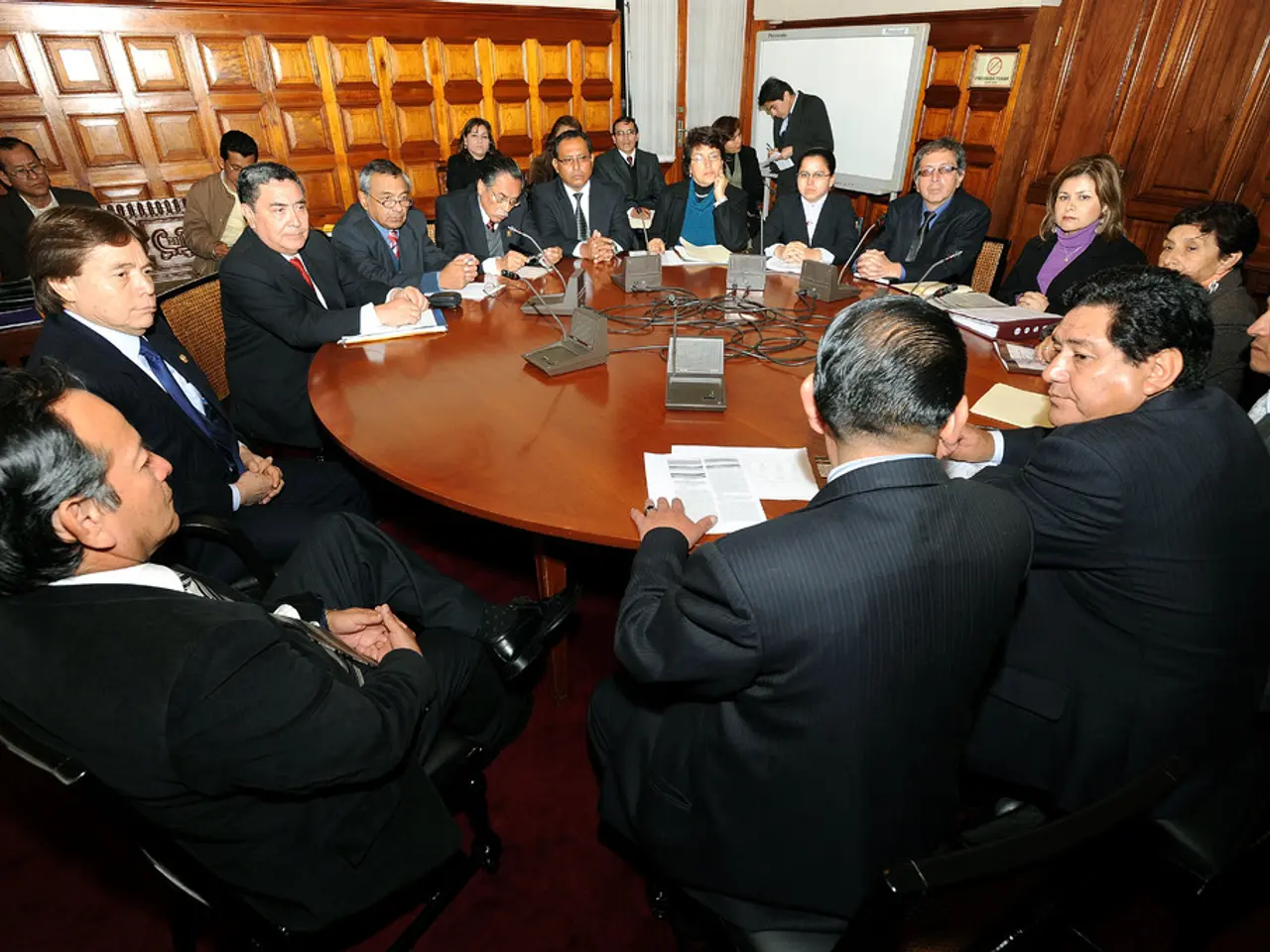Workers' Ionising Radiation Protection Directive Proposed by Commission
Germany's Federal Constitutional Court Election Crisis: A Test for the CDU-SPD Coalition
The withdrawal of Frauke Brosius-Gersdorf, the SPD-nominated candidate for Germany's Federal Constitutional Court, marks a significant turning point in the country's political landscape. Brosius-Gersdorf's decision to step down was primarily due to strong opposition from the center-right CDU/CSU parliamentary group, which categorically rejected her election.
Brosius-Gersdorf's nomination became highly controversial due to her progressive views, including support for late-term abortion rights, backing compulsory COVID-19 vaccinations, and advocating for banning the far-right AfD party. These stances led to severe attacks branding her as "ultra-left" and sparked a culture-war-like dispute reminiscent of U.S. judicial nominations. There were also accusations of plagiarism, which contributed to the media controversy.
The implications for the CDU-SPD coalition are significant. This episode marks the first major crisis within the coalition formed in May 2025. Brosius-Gersdorf’s withdrawal highlights the deep divisions within the governing alliance over judicial nominations and ideological orientation. CDU/CSU’s rejection of the candidate signals tension over the court’s future composition and portrays a challenge to coalition unity.
However, CDU leader and Chancellor Friedrich Merz has expressed confidence that the coalition partners will resolve the issue amicably and find a suitable candidate after the parliamentary summer recess, aiming to maintain the coalition's stability.
The election of Potsdam law professor Brosius-Gersdorf and two other candidates for the Federal Constitutional Court was postponed in July due to strong resistance from the Union faction. Brosius-Gersdorf was signaled by the CDU/CSU faction that her election was excluded, according to a statement released through a Bonn law firm.
The coalition now faces a new problem: finding the necessary two-thirds majority in the Bundestag for their candidate's election. The Left party has been rejected in talks with the Union faction, whose votes might be needed to avoid relying on AfD votes. The SPD's Ralph Stegner has expressed concern over Brosius-Gersdorf's withdrawal, calling it a victory for the far-right.
Federal Minister of Justice Stefanie Hubig (SPD) has expressed concern that campaigns should not lead to the loss of qualified candidates, particularly women. Alexander Schweitzer, Rhineland-Palatinate's Minister President and Vice-Chairman of the federal SPD, has called for better cooperation within the coalition. SPD faction leader Matthias Miersch has urged the CDU and CSU to commit to the rules of government and keep their promises.
Ines Schwerdtner, the Left party leader, has criticized the federal government for the events surrounding Brosius-Gersdorf's withdrawal. Schwerdtner has demanded a right of proposal and a seat at the table for the Left party in future judge elections in the Bundestag. Jens Spahn, Union faction leader, is accused by Schwerdtner of not having control over his faction.
The coalition now needs to find a solution to avoid relying on AfD votes for their candidate's election. The failed election in mid-July could have potentially resulted in the Union relying on AfD votes. The SPD is expecting more reliability and loyalty from their coalition partners, the CDU and CSU.
[1] Brosius-Gersdorf Withdraws from Federal Constitutional Court Election [2] Brosius-Gersdorf Withdraws from Federal Constitutional Court Election [3] Brosius-Gersdorf Accused of Plagiarism [4] Media Criticism of Brosius-Gersdorf [5] Merz Expresses Confidence in Resolving the Issue
The withdrawal of Brosius-Gersdorf from the election to the Federal Constitutional Court brings the politics of policy-and-legislation, such as the composition of the court, into focus during the CDU-SPD Coalition's first major crisis.
Controversial views on war-and-conflicts issues like late-term abortion rights, compulsory COVID-19 vaccinations, and banning the far-right AfD party, as well as plagiarism allegations, sparked media criticism Towards Brosius-Gersdorf.







